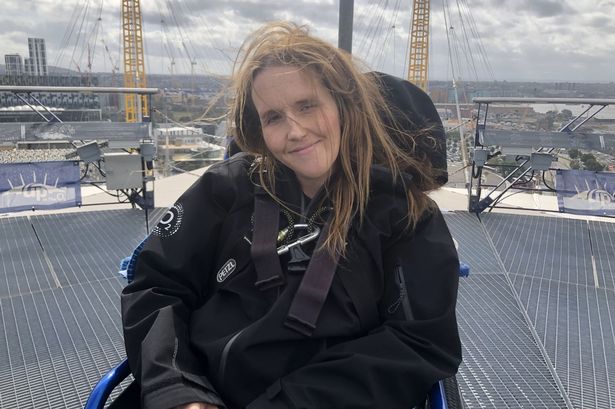A disabled woman faced a distressing situation when she was denied access to a wheelchair space on a London bus by two mothers with buggies. The incident occurred on the 432 Arriva bus while Maria Whitefield, 38, was en route to a hospital appointment on November 7, 2025. Despite her legal priority, Maria found herself in a prolonged standoff as the mothers refused to fold their buggies to accommodate her wheelchair.
Footage shared by Maria shows her attempting to board the bus, only to confront the two mothers who had occupied the designated space. Despite her insistence that “wheelchairs are a priority,” one mother responded, “he’s a priority too,” leading to what became an 20-minute standoff. Other passengers acknowledged Maria’s right to the space, yet some urged her to disembark to avoid delaying the bus.
According to the Transport for London (TfL) guidelines, wheelchair users have legal priority for the designated area as it is the only space where they can travel safely. TfL later issued an apology to Maria, reaffirming her rights and emphasizing the importance of compliance with these regulations.
“I was on my way to the hospital, and the driver had put the ramp out for me,” Maria explained. “In London, we only have one space for wheelchairs, a law upheld by the Supreme Court, stating that wheelchairs must have priority.” In her account, Maria described how she was left half on, half off the ramp, calling for help that never came.
“I asked them to fold their buggies and pointed to the sign indicating the wheelchair priority area,” she recounted. Despite her efforts, the situation escalated with no assistance from the driver or other passengers. After 18 minutes of waiting, Maria ultimately missed her appointment, which she had to reschedule for months later.
Maria expressed her frustration, wishing for intervention from the driver or fellow passengers. “The driver is meant to enforce that law. They have an announcement they can make on the bus to say the wheelchair area is required,” she noted. “In the end, I just had to give in. Traffic couldn’t move, and we were at a standstill.”
The TfL website states, “All buses have a wheelchair space available. By law, wheelchair users have priority over the space as it is the only place they can travel safely.” While the guidelines allow for shared use when not occupied by a wheelchair, they emphasize the need for cooperation from all passengers.
Following the incident, Maria filed complaints with both TfL and Arriva, stating that she had not received a response. She hopes the companies will take accountability and ensure their drivers are adequately trained to enforce the laws regarding wheelchair access.
“I debated whether to post the video on social media,” Maria said. “But I felt it was important to raise awareness. I’ve tagged TfL and Arriva, but they haven’t reached out to me.”
The video, which has garnered over two million views on TikTok, sparked a heated debate among viewers. While some expressed disbelief that the driver did not intervene, others defended the mothers with buggies. Comments varied, with one viewer stating, “The wheelchair user can’t go anywhere else. The mother can go somewhere else. It’s as simple as that.” Others pointed out the clear signage indicating the need to make space for wheelchair users.
In response to the incident, Mark Evers, TfL’s lead on Customer Insight, Strategy and Experience, acknowledged the issue. “Wheelchair users have priority access to the priority area. We apologize to Ms. Whitefield for her recent experience and appreciate the inconvenience and upset it caused her,” Evers stated. He assured that TfL is working closely with bus operators to ensure compliance and that a new disability training course has been implemented for drivers.
Maria’s experience highlights ongoing challenges faced by disabled individuals in public transport. She urges the need for improved awareness and enforcement of existing laws to ensure that everyone can access public transportation without facing unnecessary hurdles.







